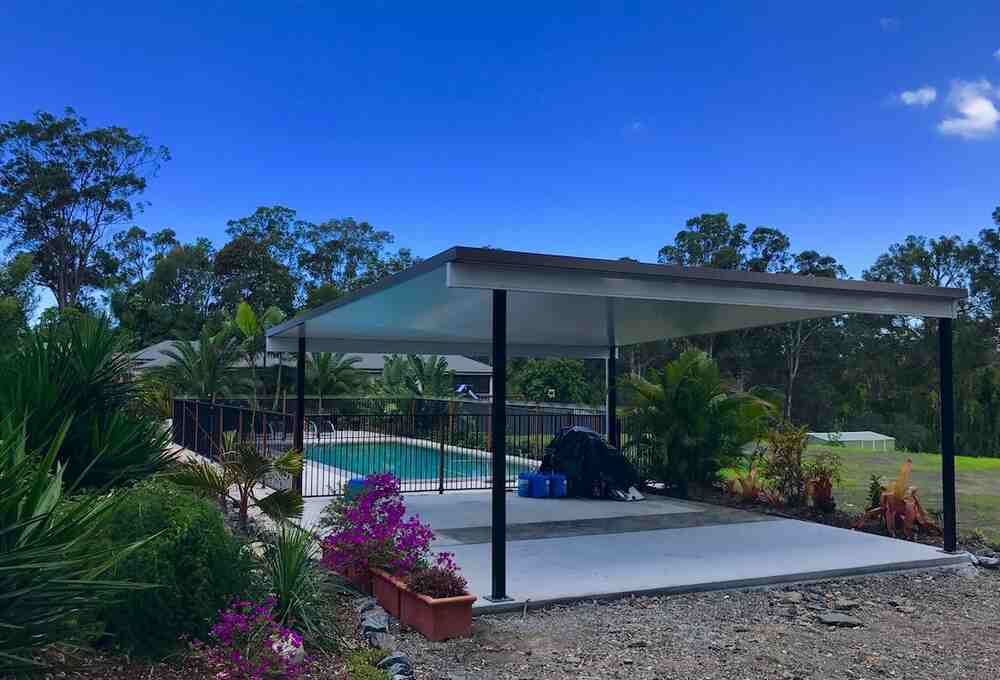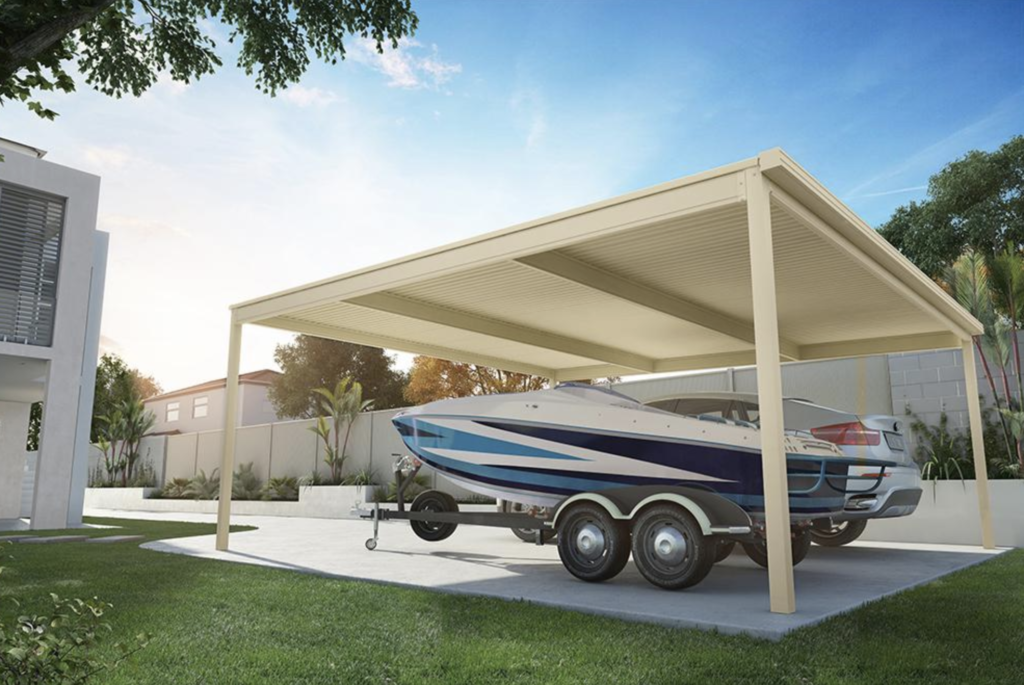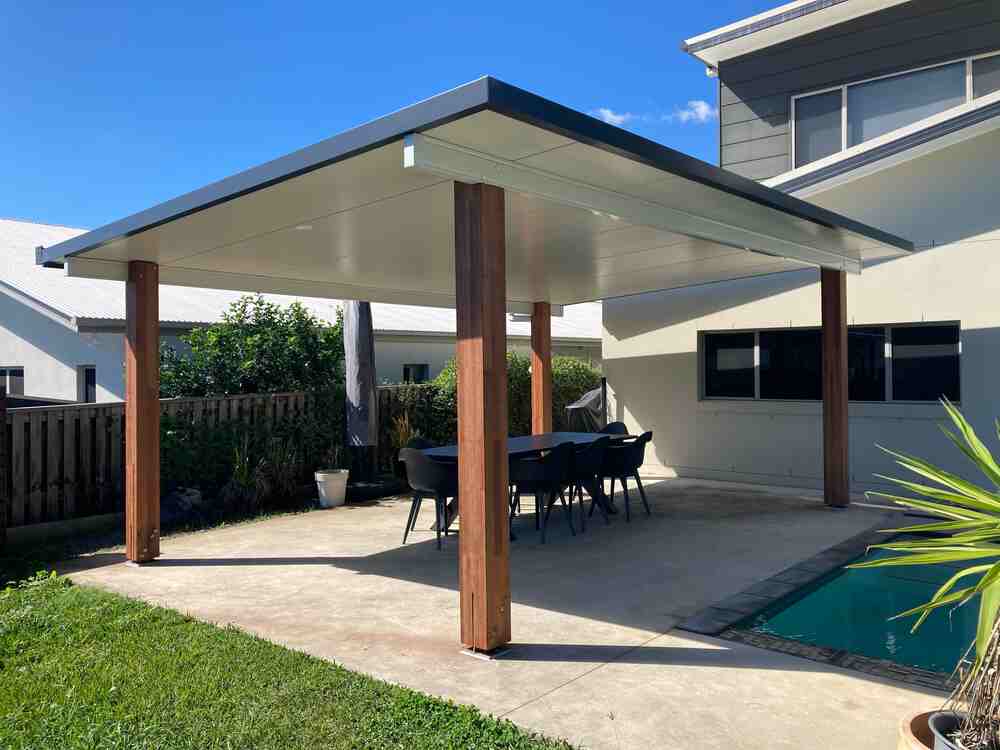When you’re building a free-standing carports, how you secure them to the ground makes a big difference in their stability and long-term durability. A lot of people bolt carports to concrete slabs, but setting your carport in the ground with footings is usually a better option.
Here’s why footings can be a smarter choice than bolting to a slab:
1. Better stability
Footings give your free-standing carport a stronger base by anchoring it deep into the ground. This helps spread the weight and gives the structure extra strength against things like wind or uneven ground. With footings, the carport’s posts are embedded directly into the ground, making it more secure and less likely to move or shift over time.
Slab bolting, on the other hand, might seem stable at first, but it doesn’t address potential soil issues. If the ground under the slab shifts due to moisture changes or settling, your carport could end up wobbly or even tip over. This is especially concerning for free-standing carports because they don’t have walls or other support structures to help them stay upright.
2. Stronger in bad weather
Free-standing carports need to be able to handle all kinds of weather, and footings are designed to do just that. Since they sit deeper in the ground, they resist things like frost heave, soil shifting, or even erosion, making your carport more durable over time. Whether it’s strong winds, heavy rain, or even snow, footings ensure that your carport stays put.
A concrete slab, on the other hand, can crack or shift when exposed to freezing temperatures, extreme heat, or moisture changes. Once the slab starts to crack or move, the stability of your carport is compromised, which could lead to it being less safe or needing repairs sooner. Free-standing carports set with footings are much better equipped to handle these weather challenges.
3. Works with any soil
One of the best things about using footings for free-standing carports is that they can adapt to almost any type of soil. Whether you’ve got clay, sand, rock, or even a mix of different soil types, footings can be customised to fit the conditions of your property. This is especially important because not all soil types are stable enough to support a slab properly.
Slabs, however, need a very stable and well-prepped surface to work properly. If the soil isn’t great, you might have to spend extra time and money on preparing the area before you can even start installing the slab. And even with all that preparation, the slab might still be prone to cracking or shifting, especially if the soil underneath is prone to movement.
4. Less maintenance over time
Free-standing carports set in the ground with footings generally require a lot less maintenance compared to those bolted to a slab. Footings, when installed properly, are very sturdy and are built to last. They don’t crack, shift, or wear down easily, which means you won’t have to worry about constant repairs or upkeep.
In contrast, slabs tend to crack or break over time, especially when exposed to soil movement, weather changes, or heavy loads. Repairing a slab can be complex and expensive, particularly if the cracks are large or affect the stability of the carport. With footings, you avoid most of these issues, making it a hassle-free and long-lasting solution for free-standing carports.

5. More flexibility in design
When you choose footings for your free-standing carport, you get a lot more flexibility in terms of design. Since the posts are set directly in the ground, you can easily adjust the height, elevation, and placement of the carport to suit your needs and preferences. This can be especially useful if you have uneven terrain or want to customize your carport’s design to match your property’s layout.
With slab bolting, however, you’re more limited. The slab often dictates the height and positioning of the carport, which can make it difficult to make adjustments after installation. If you decide later that you want the carport higher or in a slightly different spot, making those changes could be expensive and time-consuming.

6. Cost-effective in the long run
While footings might be more expensive upfront than simply bolting your free-standing carport to a slab, they can actually save you money in the long run. Because footings are so durable and low-maintenance, you won’t have to worry about frequent repairs or the cost of replacing damaged slabs.
On the other hand, the initial cost of a slab might seem lower, but if the slab cracks or shifts over time, the repairs can add up quickly. Plus, if the soil wasn’t prepared properly in the first place, you might have to deal with ongoing issues like uneven settling or moisture damage. By investing in footings from the start, you’re setting up your free-standing carport for long-term success and saving yourself the headache of future repairs.
7. Greater resistance to environmental changes
Free-standing carports set in the ground with footings are better equipped to handle the natural shifts and changes in the environment. Soil conditions change over time due to factors like water drainage, tree root growth, or even small earthquakes, but footings are designed to adapt to these changes more easily than a slab foundation.
Slabs, while solid initially, are rigid and can’t move with the ground. Over time, this can lead to cracks or uneven surfaces, which can cause structural issues with the carport itself. Free-standing carports with footings, however, can shift and settle more naturally with the ground, reducing the likelihood of damage.
Get a free quote from D&C Patios
In short, setting free-standing carports in the ground with footings offers several benefits that make it a superior choice over bolting to a slab. From better stability and weather resistance to less maintenance and greater design flexibility, footings provide a long-lasting, durable foundation for your carport. While the upfront costs might be a bit higher, the long-term savings and peace of mind make it a worthwhile investment. Free-standing carports need a solid foundation, and footings deliver just that, ensuring your carport stays strong and secure for years to come.

